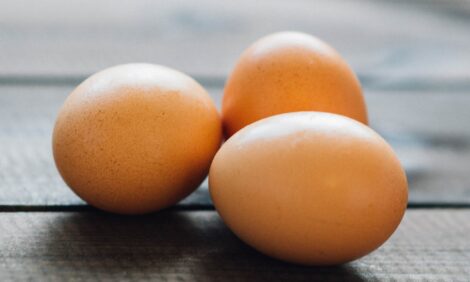



Poultry Industry Faces Testing Times
DELAWARE - The poultry industry is struggling against high costs and flat returns - a situation echoed by a number of those involved in the industry. Some in the state's industry, however, are optimistic.Delaware Online reports that times that have become tough for the state's poultry industry.
Charles 'Chick' Allen III does not mince words in describing the difficulties the industry faces. "Horrible," was the word the president of Allen Family Foods, a poultry processor based in Seaford described the situation. "The worst I've seen in almost 40 years."
A combination of rising feed costs, slowing demand and overproduction is buffeting poultry processors and growers nationally, and also in Delaware, where the industry employs almost 8,400 people, according to the Delaware Economic Development Office.
Prices for corn and soybeans, the primary sources of chicken feed, reached record highs this summer. Prices have moderated since but remain twice as high as usual. Poultry processors and farmers are also paying more for fuel and electricity.
At the same time, consumers are dining out less often, especially at casual sit-down restaurants like T.G.I. Friday's and Applebee's, where chicken is a menu staple.
Sales to supermarkets and other retailers have not grown enough to offset the lost business, experts say.
That, coupled with a virtual shutdown of poultry exports to Russia, has led to an oversupply of chicken in the US, keeping prices low and preventing processors from raising prices to cover their added costs.
"The key is how long it will last, and we don't know that yet," said John Wise, president of Mountaire Farms, based in Selbyville.
Kenny Bounds, government affairs officer for MidAtlantic Farm Credit, the largest agricultural lender on the East Coast, says, "The industry is stressed, nationwide, for sure."
One consequence of the downturn is that processors are having the farms that raise chickens for them increase the interval between starting new flocks, Mr Bounds says. That has meant chicken houses are going empty for longer stretches.
"When there are no chickens in the chicken houses, that doesn't pay the bills very well," he said.
In an effort to cut production, some processors have scaled back operations to four days a week, said Mr Allen, whose company has lowered production by 10 per cent since summer.
The big publicly traded poultry companies – Tyson Foods, Sanderson Farms and Pilgrim's Pride Corp. – have all seen their stock prices tumble in the past 52 weeks.
Sanderson shares have fallen 21 per cent, Tyson shares 68 per cent, and shares of Pilgrim's Pride have cratered 99 per cent.
Pilgrim's Pride was trading at 30 cents a share on 21 November – less than the price of a drumstick.
If anything has hamstrung the poultry industry, it has been sky-high feed prices.
Record-high prices for corn and soybeans have caused "very stiff economic challenges" for growers and processors, said Bud Malone, a poultry specialist with the University of Delaware Cooperative Extension Service in Georgetown.
Soybeans traded for $9.02 a bushel earlier this week on the Chicago Board of Trade, up from $6.28 a bushel in January 2006.
Corn, which was trading at around $2.25 a bushel in early 2006, reached a peak of $8 a bushel this summer, amid flooding in the Midwest and diversion of corn for making ethanol.
"Eight-dollar corn is a disaster," said Richard Lobb, director of communications for the National Chicken Council.
Adding to the industry's woes is Russia's attempts to curtail imports of US poultry.
Russia is the largest export market for US chicken, and the country has been trying to force lower import quotas to protect its own poultry industry.
The result is that importers are wary of bringing in US poultry for fear they will be unable to sell it.
"Trading has come to a halt," said Mike Roberts, president of Perdue's Food Products Business and chairman of the National Chicken Council.
Instead of selling their poultry in Russia, US companies are selling it here, causing an oversupply that is driving down prices, Mr Roberts explained.
But despite the industry's current woes, Delaware's poultry industry remains optimistic.
Delaware poultry processors are pushing into foreign markets like China, says Michael Scuse, who served as Delaware Secretary of Agriculture for seven years until September, when he became Governor Ruth Ann Minner's chief of staff.
At the same time, farmers are improving breeding and reducing the amount of time it takes to raise a chicken and bring it to market, Mr Scuse said.
Austin Short, Delaware's acting agriculture secretary, echoes Mr Scuse's positive outlook for the industry's future. v "I think overall the industry is sound and strong on Delmarva and will continue to be," he told Delaware Online.











